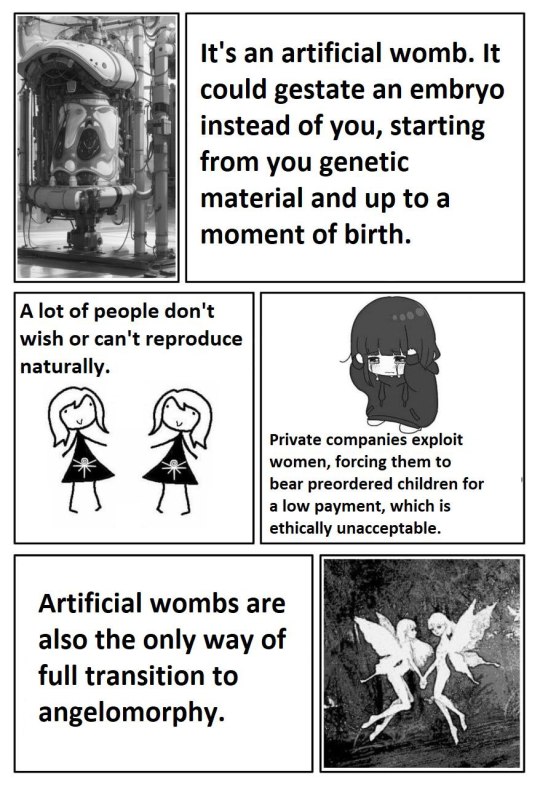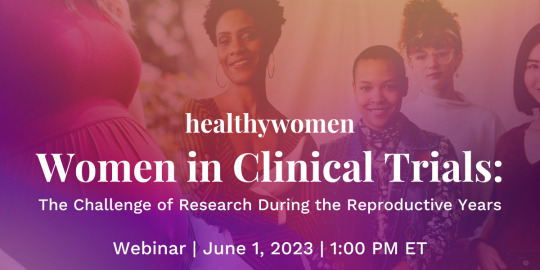#Reproductive
Photo

Vote Blue in ‘22!
#Vote Blue#Vote Blue in 2022#Vote Blue in 22#vote#voting#voter#voters#blue#Democrat#Democrats#women's rights#rights#choice#pro-choice#reproductive#LGBT#LGBTQ#LGBTQIA#SAGA#human#civil#Social Security#Medicare#Democracy#The Mad Sonneteer#Bud Koenemund#The Most Interesting Man in the World
1K notes
·
View notes
Text
The U.S. is a conservative playground where women and others are going to die because politicians can take away human rights in an instant and then people won't have access to abortions
#pro choice#im stocking up on online birth control again because they might take away our bc!!!#feminism#women#reproductive rights#reproductive#abortion#feminist#united states#america#politics
180 notes
·
View notes
Text
Examining Reproductive Medicine in India: Progress, Difficulties, and Prospects
India has made great strides in reproductive medicine, positioning it as a global center for assisted reproductive technology (ART). India has emerged as a popular destination for people seeking fertility treatments thanks to its combination of cutting-edge technology, highly qualified medical staff, and reasonably priced therapies.

Advancements in Reproductive Medicine
India has achieved significant advancements in reproductive medicine, providing a broad spectrum of treatments to address a variety of infertility-related problems. In vitro fertilization (IVF), intrauterine insemination (IUI), and egg donation are examples of assisted reproductive technologies that are now widely used.
There are even more sophisticated methods available, like surrogacy, preimplantation genetic testing, and intracytoplasmic sperm injection (ICSI). Numerous couples have been able to achieve their desire of motherhood with the use of these approaches.
Modern fertility facilities and knowledgeable fertility doctors who are abreast of industry developments are features of India’s medical infrastructure. Reproductive medicine practices continue to evolve as a result of the nation’s emphasis on medical education and research.
Challenges Faced
In spite of the advancements, the area of reproductive medicine in India faces certain obstacles. The societal stigma and lack of understanding regarding infertility provide a major obstacle.
Because of social pressure and false beliefs, many couples are reluctant to seek medical attention. By addressing these problems through counseling and public education initiatives, the stigma attached to infertility might be lessened.
Strict laws that guarantee moral behavior and safeguard the rights of intended parents, surrogates, and donors present another difficulty.
Although India has taken steps to control assisted reproduction, more changes and regulations are needed to create a thorough legal system.
Hopeful Prospects
For infertile couples, the state of reproductive medicine in India gives optimism. For both domestic and foreign patients, the mix of cutting-edge technology, highly qualified medical staff, and reasonably priced treatment charges makes it a desirable option.
In addition, the Indian government is aggressively pushing medical tourism due to its recognition of its potential, which has resulted in higher investments and the construction of infrastructure.
Significant progress in reproductive medicine has been made in India, offering hope to many infertile couples. The advancement of assisted reproductive technology in India, along with the commitment of highly qualified medical experts, has made the country a top fertility treatment destination.
Ethical standards and the advancement of the sector will be further ensured by addressing issues with awareness, stigma, and regulation. Reproductive medicine in India has a bright future filled with hope and fulfillment for those wishing to become parents, provided there are ongoing improvements and a supportive atmosphere. If you are planning build a career in reproductive medicine StudyREPRO is the best option to learn reproductive medicine.
2 notes
·
View notes
Text
Ectogenesis. Artificial reproduction of the future.
The idea of creating an artificial human being dates as far back as the Middle Ages, and was closely intertwined with alchemy and hermetic philosophy. These, in turn, were often based on Christianity, where there was a treatment of God as androgynous. Moreover, the very first mention of an artificial man with no particular sex appeared in the European tradition by the hermetic philosophy. In the treatises of the alchemists who drew upon it, the process of man's artificial creation is analogous to the man-made alloying of perfect metals.
As the philosopher Henri Bergson noted, one of the main things that distinguishes humans from other animals is the separation of technology from the body. And reproduction is no exception here. Thus, the entire reproductive system in the world of angelomorphism will be taken outside the body into incubators - artificial wombs. In artificial wombs, the application of the knowledge accumulated by humans will allow humanity to be forever deprived of sex, and society to be cleansed of the vices of the social sex. And now this topic is slowly gaining momentum: there are studies stating that the cost of artificial incubation (ectogenesis) will be less than the cost of natural childbirth for women. Accordingly, the consequences of this will definitely be much less.
In 2018, the journal Scientific Reports published a paper that found that with each pregnancy a mother's telomeres become older than them of her peers without children. This difference was estimated by scientists to be up to four to six years. Although telomeres are known to shorten with age in all people, certain phenomena, such as high body mass index (including pregnancy) and severe stress, easily accelerate this process. The study also examined women's epigenetic age: a measurement based on DNA isolated from white blood cells. The results echoed what telomeres showed, and each additional pregnancy was associated with an increase of 0.5 to 2 years in internal aging.
On top of all that, incubator reproduction makes any discussion of abortion meaningless. An incubator, unlike a living female human being, has no rights or choices. The incubator solves absolutely all the social and biological problems associated with reproduction. This method is the only one that would help mankind completely forget what death in pregnancy and childbirth, abnormal children, reproductive violence and unwanted pregnancies are. At the moment, such experiments are generally considered unethical by the international community. But it begs the question, what is more unethical: to allow many women around the world to die every day because of childbearing, or to use fetal material for the ultimate solution to the problem of reproduction?
Shulamit Firestone, one of the authors of the seminal works of the feminist movement, described in her writings the need for a radical solution to the problems posed by changing the reproductive organization of society, moving reproduction to incubators, in order to free women from the need to determine their role in society by biology, because female bodily autonomy is in principle incompatible with female reproductive biology. Her "first requirement for any alternative system" was "to free women from the tyranny of biology by any means available." "The reproductive organization of society," she wrote in her writings, "is always the real basis on which we can work out an explanation of the whole superstructure of political, economic and legal institutions. And as we understand it, since sex has no purpose other than reproduction, then with a change in the reproductive organization of society, the existence of sex will lose all meaning.
However, despite everything, the situation is improving: in 2022, the Suzhou Institute of Biomedical Engineering created an "embryo culturing device" based on artificial intelligence.Previously, researchers controlled fetal development in the laboratory uterus manually, but Chinese scientists managed to program the world's first smart monitoring system. The system is able to check the indicators of the environment in which the embryo develops: temperature, the ratio of carbon dioxide to oxygen, and the concentration of nutrients. In 2021, the University of Virginia Medical School succeeded in growing a mouse embryo from stem cells that began to form a heart and nervous system. The same year, Israeli scientists managed to grow mouse embryos in a kind of incubator. Two other research teams report in Nature a breakthrough in the creation of artificial human embryos. These teams succeeded in forcing normal skin cells and stem cells to self-assemble into formations similar to early human embryos.
Consequently, such experiments conducted for experimental purposes, are now ending up quite fruitfully. Artificial reproduction technology has all the chances to appear in its final form and then begin to be tested en masse. In 2004, scientists in Japan managed to create a viable cell by fusing two oocytes taken from different female mice, the division of which led to the formation of a viable embryo, which developed into an adult, and which lived longer than normal congeners for 186 days. As the scientists noted in their February 2010 publication in the journal Human Reproduction, all resulting female mice compared with normal mice were significantly smaller in size and weight.
Presumably, male genes increase the growth potential of muscle and skeleton in the body of the cub, while shortening its life. It has been proven that individuals of all species with less testosterone are more prone to longevity, but here we are already talking about the genetic level. Without signs not only of puberty, but also of hormonal bursts in the embryonic period, human bodies will apparently be close to androgynous and even to the outlines of adolescent bodies, since they will be significantly smaller in size if ectogenesis (artificial reproduction with an incubator) and parthenogenesis (growing an embryo without male genetic material) is performed. This has been successfully confirmed by the above experiments of Japanese scientists on mice. It remains to be seen whether time will show how this experience will affect and transform humans - however, there is every reason to believe that the changes will only be for the better.

#radical feminism#radblr#transhumanism#artificial reproduction#mem#meme#reproductive#incubator#feminism#emancipation#postgenderism
2 notes
·
View notes
Text
Despite Challenges, Clinical Research Must Include Women of Reproductive Age
HealthyWomen hosted a congressional briefing, “Women in Clinical Trials: The Challenge of Research During the Reproductive Years,” on June 1, 2023.Clinical trials have long been focused on white men, leaving women woefully underrepresented. Lack of diversity in clinical trials means that healthcare providers (HCPs) often don’t have enough data about how certain conditions affect women or what…

View On WordPress
#access#Age#babie blue#Challenges#Clinical#Clinical Trials#health policy#Include#policy#Reproductive#research#Women
2 notes
·
View notes
Text
PCOS

2 notes
·
View notes
Text
#pro choice#prochoice#pro-choice#abortion#reproductive health#reproductive justice#reproductive organs#reproductive#reproductive care#reproductive services#reproductive rights#freedom#liberty#choice
2 notes
·
View notes
Text

Apakah kita hanya mesin reproduksi? arubio28814.blogspot.com
2 notes
·
View notes
Text
The End of Roe v Wade and What it Means
#abortion#baby#choice#conception#court#female#jackson#justin#lance#life#reproductive#rights#roe#states#supreme#trimester#tsou#wade#weller#woman
2 notes
·
View notes
Video
Next time the national anthem is played, every woman & girl in this country should take a knee. by Eileen Keller
Via Flickr:
Contact us if you would like to share your Social Justice Art with others. We'll include your artist credit and a link to your online artist gallery - socialjusticeartshare.com
2 notes
·
View notes
Text
If we don’t own and get to control our own bodies, we do not own ourselves or our lives. We don’t have anything. We are slaves.
#roe versus wade#Roe vs Wade#pro-choice#freedom#bodily autonomy#Health Care#healthcare#health#reproductive#sexism#mysogyny
2 notes
·
View notes
Photo

meme, the simpsons, women, abortion, republicans, womens rights, reproductive rights, pro choice, birth control, roe v wade, prolife, reproductive justice, prochoice, abortion rights, abortion access, bans off our bodies, health equity, memeteam, motion meme, roevwade22
3 notes
·
View notes
Text




37K notes
·
View notes
Text

source 1
source 2
#destiel meme#destiel meme news#news#world news#abortion#abortion laws#abortion rights#mexico#latin america#YEAHHH GO MEXICO GO#reproductive rights#reproductive health#watching the notes go up on this with the jerma gif has been amazing#viva mexico
83K notes
·
View notes
Text
#TO CLARIFY ON THE SECOND POINT: VAMPIRES *HAVE* A REPRODUCTION METHOD THAT IS NOT SEX-BASED#THAT IS THE MAJOR POINT OF THAT ONE. THAT VAMP REPRODUCTION IS BASED ON CONVERTING INTO UNDEAD AND NOT PREGNANCY#what i think i keep coming back to is that a vampire is like. a form of pathogen or perhaps parasite#is the individual vampire meaningfully distinct from that? maybe#sort of a made up question#but that’s not a mammal#so neither is a vampire#but also like. a human is a mammal#this question sponsored by my friend who said she was done keeping mammals bc ‘they have so much fluid in them’#and my thought that a vampire Wouldn’t#not a lot of fluids. happening there
23K notes
·
View notes
Text
Navigating the Ethics of Reproductive Technologies: A Christian Perspective

Introduction
The topic of Christian ethics and reproductive technologies is a complex and often controversial one, as it involves the intersection of religious beliefs and modern science. As Christians, it is important for us to understand the ethical implications of assisted reproduction and birth control, and how it aligns with our faith. This article aims to provide a comprehensive overview of this topic, exploring both the advancements in reproductive technologies and the Christian perspectives on assisted reproduction and family planning.
At its core, the ethics of reproductive technologies raises questions about the sanctity of life and responsible parenthood, which are deeply rooted in Christian teachings. By diving into the biblical references and ethical considerations surrounding these issues, it is our hope that this article will serve as a helpful guide for those seeking to navigate this complex and important topic. Let us delve into the world of Christian ethics and reproductive technologies, and see how we can balance faith and science in this ever-evolving field.
Reproductive technologies refer to the various medical procedures and interventions that assist individuals or couples in achieving pregnancy and starting a family. These technologies have revolutionized the field of reproductive medicine, offering hope to those who may have previously struggled with infertility or other reproductive challenges. Examples of reproductive technologies include in vitro fertilization (IVF), artificial insemination, surrogacy, pre-implantation genetic diagnosis (PGD), and embryo adoption.
Key Takeaways
- Reproductive technologies raise ethical concerns that must be considered.
- Christian ethics emphasize the sanctity of life and the responsibility to protect it.
- Assisted reproductive technologies, surrogacy, and pre-implantation genetic diagnosis raise complex ethical questions.
- Embryo adoption and fertility preservation offer ethical alternatives to traditional reproductive technologies.
- Human cloning and genetic engineering present significant ethical challenges that require careful consideration.
Reproductive Technologies Overview
Reproductive technologies, also known as assisted reproductive procedures, refer to medical interventions that assist individuals or couples in achieving pregnancy. Procedures like in vitro fertilization (IVF), intracytoplasmic sperm injection (ICSI), and surrogacy, have provided hope for couples struggling with infertility, but they have also sparked ethical debates and concerns.
From a Christian perspective, these technologies raise questions about the sanctity of life, the role of parenthood, and the manipulation of natural processes. It is crucial to understand the implications of these technologies and their ethical considerations in the context of Christian beliefs. In the following sections, we will explore the Christian perspectives on assisted reproduction and the ethical considerations involved in family planning and birth control. In Christianity, reproduction and family are considered sacred and hold significant importance. Christians believe that human life is a gift from God and should be treated with reverence and respect. The Bible teaches that children are a blessing and that procreation is a natural part of God's design for humanity.
Christian ethics inform decision-making in reproductive technologies by emphasizing the importance of upholding the sanctity of life and promoting the well-being of all individuals involved. Christians are called to consider the ethical implications of their choices and to prioritize the best interests of any potential children that may be conceived through reproductive technologies.

The Ethics of Assisted Reproductive Technologies
Assisted reproductive technologies (ART) encompass a range of procedures aimed at helping individuals or couples conceive a child. These technologies include IVF, intrauterine insemination (IUI), and sperm or egg donation. From a Christian perspective, ethical considerations arise when these procedures involve the destruction of embryos or the use of third-party gametes.
One ethical concern is the potential for multiple embryos to be created during IVF, leading to the selective reduction or disposal of excess embryos. Christians believe that each embryo has a right to life and should not be treated as disposable. Therefore, alternative approaches such as single embryo transfer (SET) are encouraged to minimize the risk of multiple pregnancies and reduce the need for embryo selection.
Another ethical issue is the use of donor gametes, which raises questions about the importance of biological connection and the potential impact on a child's identity and sense of self. Christians may prefer procedures that prioritize the use of the couple's own gametes or explore options such as embryo adoption to maintain genetic continuity.
The Role of Christian Ethics in Assisted Reproduction
Christian ethics play a significant role in shaping perspectives on assisted reproduction. As Christians, we look to the Bible for guidance on matters of life and family. When it comes to assisted reproductive procedures such as IVF and surrogacy, there are biblical references that can provide insight and direction.
For example, Jeremiah 1:5 reminds us that God knows us before we are formed in the womb, emphasizing the sanctity of life. This verse raises ethical concerns about the creation and destruction of embryos in IVF. On the other hand, Genesis 30:1-3 shows how Rachel used a surrogate to bear children for her husband, highlighting the complex nature of surrogacy from a biblical perspective.
As Christians, we also believe in the importance of following God's plan for our lives. This includes the desire to have children and the responsibility of parenthood. Therefore, when considering assisted reproduction, we must consider how it aligns with our faith and values.
The Ethics of Surrogacy and Gestational Carriers
There are two types of surrogacy: traditional surrogacy, where the surrogate's own egg is used, and gestational surrogacy, where the surrogate carries an embryo created from the intended parents' gametes or donor gametes.
From a Christian perspective, ethical concerns arise regarding the potential commodification of the surrogate's body and the potential disruption of the natural bond between a mother and her child. Christians may advocate for a more compassionate approach that prioritizes the well-being of all parties involved, including the surrogate, the intended parents, and any resulting children.
The Ethics of Pre-Implantation Genetic Diagnosis
Pre-implantation genetic diagnosis (PGD) is a procedure used during IVF to screen embryos for genetic disorders or chromosomal abnormalities before implantation. This technology allows couples to select embryos that are free from certain genetic conditions.
From a Christian perspective, ethical considerations arise when PGD is used for non-medical reasons or when it involves the destruction of embryos deemed undesirable. Christians may argue that all embryos have inherent value and should not be discarded based on their genetic characteristics alone. However, there may be situations where PGD is ethically justifiable, such as when it is used to prevent severe genetic disorders that would significantly impact a child's quality of life.
The Ethics of Embryo Adoption
Embryo adoption involves the transfer of frozen embryos from one couple to another for the purpose of achieving pregnancy. These embryos are typically leftover from previous IVF cycles and are donated by couples who have completed their family-building journey.
From a Christian perspective, embryo adoption can be seen as a way to respect the sanctity of life by providing these embryos with an opportunity to develop and be born. It allows couples who may have struggled with infertility to experience the joys of parenthood while also honoring the dignity of these frozen embryos.
The Ethics of Fertility Preservation
Fertility preservation refers to the process of freezing eggs, sperm, or embryos for future use. This technology allows individuals or couples to preserve their reproductive potential in cases where fertility may be compromised due to medical treatments, age, or other factors.
From a Christian perspective, ethical considerations arise when fertility preservation involves the creation and storage of excess embryos. Christians may advocate for procedures that minimize the risk of creating more embryos than are necessary and encourage responsible decision-making regarding the disposition of any unused embryos.

The Ethics of Human Cloning and Genetic Engineering
Human cloning and genetic engineering are highly controversial topics that raise significant ethical concerns. Human cloning involves creating a genetically identical copy of an existing individual, while genetic engineering involves manipulating an individual's genetic makeup.
From a Christian perspective, these technologies raise concerns about playing God and interfering with the natural order of creation. Christians believe that humans are created in the image of God and should not be subject to manipulation or alteration. Therefore, many Christians oppose human cloning and genetic engineering on ethical grounds.
The Sanctity of Life in Christian Ethics
AspectDescriptionHuman DignityEvery human being is created in the image of God and has inherent worth and value.Sanctity of LifeLife is sacred and should be protected from conception to natural death.EuthanasiaIntentionally ending a life, even to relieve suffering, is morally wrong.AbortionThe deliberate termination of a pregnancy is a violation of the sanctity of life.Capital PunishmentWhile some Christians support the death penalty, others argue that it violates the sanctity of life.Quality of LifeChristians believe that every life has value, regardless of physical or mental abilities.
When it comes to reproductive technologies, the sanctity of life applies in several ways. Christians believe that every embryo created through these technologies deserves respect and protection, regardless of its genetic characteristics or the circumstances of its conception. This means that decisions regarding the selection, disposal, or manipulation of embryos should be made with great care and consideration for their inherent value as human beings.
Understanding Family Planning and Birth Control from a Christian Ethical Standpoint
Family planning and birth control methods have become increasingly common in modern society. However, for Christians, the decision to use these methods is not just a matter of personal preference, but also a matter of ethical considerations.
In Psalm 127:3-5 KJV, it is stated that "children are a heritage of the Lord" and that "happy is the man that hath his quiver full of them." This biblical teaching highlights the importance of procreation and parenthood in the eyes of God. Therefore, Christians must carefully consider their beliefs and moral values when making decisions about family planning and birth control.
1 Timothy 5:8 KJV also reminds believers of their responsibility to provide for their families and to practice responsible parenthood. This includes considering the physical, emotional, and financial readiness to raise children. With this in mind, Christians must weigh the potential benefits and ethical implications of using birth control methods.
Ultimately, the decision to use birth control should be guided by the individual's personal beliefs and convictions, as well as seeking guidance from their faith. It is important to carefully consider the teachings of the Bible and the ethical implications of using birth control methods in order to make an informed and responsible decision.
The Importance of Responsible Parenthood
Family planning and birth control methods are often viewed as controversial topics within the Christian community. However, it is important to understand that responsible parenthood is a fundamental aspect of Christian ethics. As mentioned in Psalm 127:3-5 KJV, children are a heritage from the Lord and parents have a responsibility to raise them in a loving and nurturing environment.
Furthermore, 1 Timothy 5:8 KJV states that providing for one's own household is a duty for all believers. This includes making responsible decisions about family planning and ensuring that every child is given the best possible care and upbringing.
Through responsible parenthood, Christians can fulfill their duty to God and society by ensuring that they are able to properly care for their children both emotionally and financially. It is important to consider this aspect of Christian ethics when making decisions about assisted reproduction and other reproductive technologies.

Conclusion
In conclusion, Christian ethics and reproductive technologies are complex and often controversial topics. Through this comprehensive overview, we have explored the role of Christian beliefs in shaping perspectives on assisted reproduction, ethical concerns surrounding family planning and birth control, and the challenges and benefits of balancing faith and science in this area.
It is important for individuals to educate themselves and seek guidance from their faith when making decisions about reproductive technologies. As responsible Christians, we must consider the biblical teachings on procreation and parenthood, as well as the concept of responsible parenthood, when navigating these issues.
While advancements in reproductive technologies may bring benefits, it is crucial to approach them with caution and consideration of our religious beliefs. As we strive to balance faith and science, let us remember to put our trust in God and seek His guidance in all aspects of our lives. Let us also extend compassion and understanding to those who may have differing views on this topic.
Reproductive technologies have opened up new possibilities for individuals and couples struggling with infertility or other reproductive challenges. However, it is crucial to navigate these technologies with careful consideration of the ethical implications involved. From a Christian perspective, the sanctity of life and the well-being of all individuals involved should be prioritized in decision-making.
By balancing technology and ethics, individuals and couples can make informed choices that align with their values and beliefs while respecting the dignity of all human life. It is essential to engage in open and honest discussions, seek guidance from trusted advisors or religious leaders, and consider the long-term consequences of reproductive decisions. Ultimately, by approaching reproductive technologies with sensitivity and ethical awareness, we can create a society that values life and promotes the well-being of all individuals involved in the process.
Article By: Dr. RB Sheppard
References
1. Bible References:
- Genesis 1:28 (KJV)
- Psalm 139:13-16 (KJV)
- Jeremiah 1:5 (KJV)
- Genesis 30:1-3 (KJV)
- Psalm 127:3-5 (KJV)
- 1 Timothy 5:8 (KJV)
2. Other Sources:
- "The Ethics of Reproductive Technologies" by The Center for Bioethics and Human Dignity
- "Christian Perspectives on Reproductive Technologies" by The National Catholic Bioethics Center
- "Christianity and Assisted Reproduction" by The Ethics and Religious Liberty Commission
- "The Bible and Birth Control" by FamilyLife
- "Christian Ethics and Birth Control" by Focus on the Family
Here are five additional scholarly articles discussing the ethics of reproductive technologies from a Christian perspective that may offer some additional insight:
- "Interpretations of Biblical Text and the Implications for Reproductive Technology"1: This article discusses the Church's view on reproductive technologies such as surrogacy, IVF, gamete donation, and abortion, focusing on the idea that human procreation should be between a man, a woman, and God.
- "TGC Course | Ethical Issues of Pregnancy and Infertility"2: This course examines bioethical issues such as IVF, surrogacy, prenatal genetic testing, embryo adoption, miscarriage, unplanned pregnancy, and post-partum depression from a biblical perspective.
- "Religious aspects of assisted reproduction"3: This article explores the various assisted reproduction techniques allowed by different Christian denominations, highlighting the diverse attitudes and beliefs within the Christian faith.
- "IVF and Christianity"4: This resource provides an overview of the attitudes of various Christian groups towards assisted reproductive technologies, emphasizing the importance of the embryo's moral status as a human being in traditional Christian views.
- "The Overlooked Ethics of Reproduction"5: This article discusses the moral implications of in vitro fertilization (IVF) and other reproductive technologies, urging Christians to consider the appropriate use and limits of technology in the context of a Christian worldview.
This list of references provides readers with biblical sources and other reputable resources to further explore the complex topic of Christian ethics and reproductive technologies. These sources offer in-depth discussions and insights on the intersection of faith and assisted reproduction, as well as the ethical considerations involved. It is important for individuals to educate themselves and seek guidance from their faith when making decisions about reproductive technologies, and these references can serve as valuable tools in that process.
Read the full article
#biblicalstanceonassistedreproduction#bioethicsandChristianity#christian#ChristianapproachtoIVF#Christianperspectivesonfertilitytreatments#Christianreproductiveethics#Ethics#faith-basedfamilyplanning#faith-basedtechnologyviews#moralconsiderationsinreproductivetech#navigating#perspective#religiousconsiderationsinfertilitychoices.#religiousviewsonreproductivetechnologies#reproductive#technologies:#Well-being
0 notes
